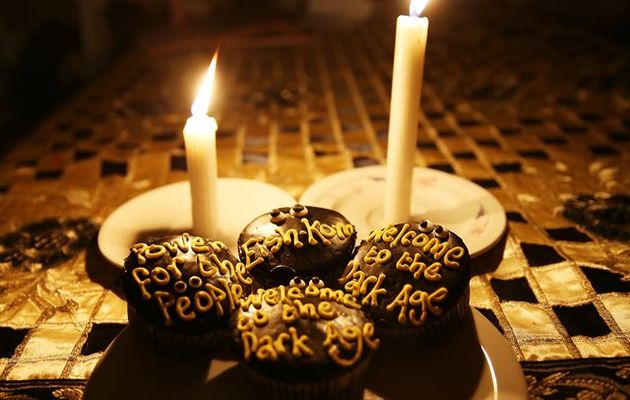As working Muslims struggle to make it home for iftar due to the earlier onset of Maghrib in winter, this year has been a greater challenge with the added burden of load-shedding. Power cuts in South Africa have become the day-to-day norm for many households, and for the most part, load-shedding schedules have made it easier for families to better prepare themselves for electricity outages.
But load-shedding in Ramadan has been a hassle, as most Muslims prepare their food close to the time for the breaking of the fast. Even mosques have had to deal with the inconvenience of load-shedding during the all-important Taraweeh prayers. Some musallees have performed salah in dim candle light and imams are forced to recite without the help of microphones and speakers.
For Sumaya Adams, load-shedding has become a constant problem which causes great discomfort for her and her family. It forces her to prepare her food way in advance and left her and her family eating in the dark.
“It is ridiculous! I have to prepare my food so early and by the time it is boeka it is so cold. We don’t have a gas stove so I have no other way to heat it. We ate in complete darkness. They [Eskom] have no consideration for the Muslim community or anyone,” says Adams.
Salega Hassen said preparing her food in advance has become a ritual. She says she had not been affected by load shedding that much as she is well prepared.
“I have managed to check the time we get load shedding and managed to cook my food before the time. Lucky for us, load shedding happens after Fajr so we can still have suhoor in the morning,” says Hassen.
She says load shedding is reminiscent of the old days when many households survived without electricity.
“There was a time when we have 4hrs load shedding. It reminds me so much of the time when I was little. We had no lights and we had to use candles. There was no TV, no stove we had to use wood to put the stove on. It’s great that technology improved but it feels like we are going backwards. On a positive note, I guess that means more time for our salah and other duties,” says Hassen.
Some mothers have resorted to desperate measures to heat their food.
“I prepare before the time, but I do have a gas stove as well. But I recently ran out of gas, and had to make a fire in the fireplace to boil water and food,” says Magmoedah Salie Latief.
While some cooks find comfort in alternatives like a gas stove, others are preparing meals with cold meat and fruit.
“It’s been awful. Yesterday our electricity was off for hours, so I prepared a light meal. Now I’m starting very early with iftar,” says Fazlin Bassadien Albertyn.
Malika Abrahams said: “Last week, I had no way to heat my food. I ate cold tomato food and soup. The experience made me realise that we have a lot to be grateful for, as this is the daily struggle of the poor.”
To help you plan more efficiently for load shedding, VOC has compiled these tips, courtesy of Good Housekeeping magazine:
1. Put the proposed load shedding times on your fridge so that your family will have enough time to prepare for the power outage.
2. Alarm systems, garage doors and electric gates generally rely on electricity so make sure that these items all have good back-up batteries. If your alarm system does not have a back-up battery, be cautious during a power outage. It is worthwhile to purchase a mobile panic button which runs off batteries and which is linked to a reputable emergency response company.
3. If you rely on a cordless phone, which would obviously be rendered inoperable during a power outage, keep your cell phone handy.
4. Use LED globes with a rechargeable battery backup, so when the power outage occurs, you just need to connect the rechargeable battery to the LED globe to produce light.
5. Make sure your computer, laptop, phone or iPad is fully charged so you can still use them.
6. Keep an oil lamp, torch or solar, battery powered light or lantern or portable light that is charged beforehand in multiple, easily accessible locations around your home. Be sure to also have plenty of fresh, spare batteries.
7. Fill a thermos flask with boiling water before the blackout for a warm cup of tea or coffee during the blackout.
8. If your budget allows, buy a portable generator. Learn to safely use your generator and test it monthly. Make sure to store enough fuel to run the generator for up to a week.
9. Your fridge and freezer supplies should be okay without power over night if you do not open and close it repeatedly. VOC






 WhatsApp us
WhatsApp us 


2 comments
WONDER BOX COOKER, and/or the WONDERBAG – A MUST HAVE ESKOM HIGH TECHNOLOGY GREEN DEVICES nowadays !!
Note that Good Housekeeping magazine article makes no mention of the WONDER BOX as a heat retention cooker or the WONDERBAG, one of the first portable, non-electric slow cooker. Founded in South Africa in 2008, we’re changing the way communities cook around the world … one household, one village, one community at a time.
if only they stuck to the schedule